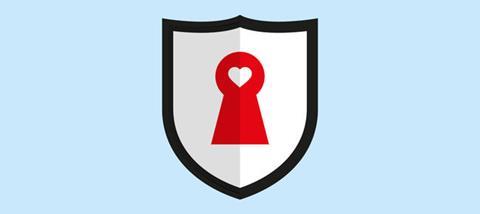
Safeguarding is vital for any organisation working with children or vulnerable adults. It is especially important for churches as they are often unique in the way they operate as a community, with adults and children gathered together in close proximity. Church doors are open to anyone, which means workers can be called upon to help at any time, particularly in a crisis. Churches can often face the challenge of needing to address issues for both the abused and the abuser. Protecting your staff and volunteers, as well as those you are serving, can be a real challenge.
Children and young people may experience many different kinds of abuse including physical, sexual and emotional abuse, and neglect. They may also experience spiritual abuse in a variety of forms.
Many leaders will know how to safeguard those in their care, but there are times when expert guidance is needed. What can sometimes feel like a burden is vital in keeping children safe from harm. If safeguarding is new to you or you need refreshing, here are five ways to ensure your organisation becomes a safer place for everyone. The Churches’ Child Protection Advisory Service (CCPAS) has plenty more ideas, training, advice and resources to help you build safe and healthy cultures for everyone, which we will explore in future columns.

Appoint a safeguarding lead
Appoint at least one person to take the lead on safeguarding within your organisation. There are three main functions for a safeguarding lead:
- To act as an advocate
- To act independently in reporting concerns of abuse
- To oversee the preparation and implementation of the safeguarding policy
Safeguarding leads do not need to be experts in child or adult protection. That can be left to the statutory agencies and CCPAS can also help. They just need to be vigilant, ensuring that the right policies and procedures are in place and that only suitable people are allowed to work and volunteer with vulnerable groups. A safeguarding lead will be instrumental in making your organisation or place of worship a safer environment for all. For more, visit youthandchildrens.work/links.
Write a safeguarding policy
Writing and implementing a safeguarding policy sends a powerful message to parents, children and visitors, as well as those intent on harm, that safeguarding is taken seriously within your organisation. It also helps to protect your workers by defining clear boundaries and ways of working. Here’s what to always include:
- A mission statement: a statement of intent and commitment to safeguarding from the organisation’s leadership
- Expectations of conduct: a statement explaining the expectations of conduct towards children, young people and adults at risk
The safeguarding policy must be clear and easily understood. It should be approved, endorsed and signed by the leadership, and be readily available to any person requesting to view it. CCPAS has a template policy available to members as well as additional support and training to help you put your policy together. For more, visit youthandchildrens.work/links.
Review how you recruit staff and volunteers
Every parent, carer or family member has the right to expect the same standards of recruitment and professionalism, irrespective of whether the individual is paid or works voluntarily.
Some mistakenly believe that carrying out a Disclosure and Barring Service (DBS) check (formerly CRB check) is all that is needed, and it can be tempting for places of worship to take shortcuts when a person is willing to help out and is a familiar face. Those who have responsibility in this area need to understand that a disclosure check is only part of upholding a safer recruitment process.
A decision to appoint someone should be based on all information gathered (including their experience, ability, suitability and motives for working with and young people young people). It should not be based on factors such as the urgency of need or the immediate availability of the applicant. An assessment of each candidate may then be made.
Train and manage your team
Within any organisation that deals with safeguarding issues, all workers (paid and voluntary) need to be appropriately trained, managed and supported.
It is important that there are clear lines of accountability so everyone knows how to discuss and refer matters of concern. Managers need to demonstrate the highest standards of conduct, modelling the practices they want others to adhere to. This includes a willingness to attend training.
Ensure that relevant, role-specific training is available for those who work with children and young people, and also for other activities of the church or organisation. This might include safeguarding training, health and safety, first aid, food hygiene and so on.
This doesn’t have to be a big task, but ensure that your team is confident in its knowledge of current legislation and ways of working safely.
Celebrate your achievements together
Spending time celebrating the things you’ve done in your team to help keep those in your care safe is really important. It could be as simple as an evening round someone’s house for a few hours to remind each other of the importance of their work and to thank them for all they do. Let your team know you appreciate them and remind them that what they are doing is making a difference. Inspire them. Pray together about some of the issues and challenges the team may be facing.
Call CCPAS on 0303 003 1111 for independent, professional and compassionate support around safeguarding in your organisation: ccpas.co.uk.
Click here to request a free copy of Premier Youth and Children's work magazine






































